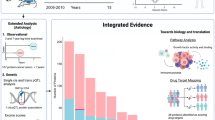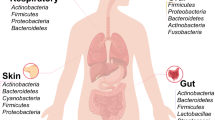Abstract
Background
Biological similarities between inflammatory bowel disease (IBD) and familial Mediterranean fever (FMF) have been described in humans and animal models suggesting a possible common genetic basis. FMF is caused by variants in the MEFV gene which encodes pyrin, an immune regulator. This study aimed to investigate the carrier rate of disease-causing MEFV variants in children of different ethnicities diagnosed with very-early-onset IBD (VEO-IBD).
Methods
The study included 23 children diagnosed with VEO-IBD who had undergone whole exome sequencing. The exomes were evaluated for MEFV monoallelic and biallelic disease-causing variants and compared to exome sequencing data of 250 probands with suspected monogenic diseases other than IBD.
Results
Of the 23 children diagnosed with VEO-IBD, 12 (52%) were carriers of at least one MEFV disease-causing variant, which was threefold higher than in individuals without IBD. The most frequent variants identified were p.M694V and p.E148Q (42% each). The allelic frequency of MEFV variants was found to be higher across the VEO-IBD group in 13 of 14 ethnicities compared to the control group.
Conclusion
The study suggests that disease-causing variants in the MEFV gene should be sought in cases of VEO-IBD. However, the clinical importance of this finding is yet to be defined.
Impact
-
There are biological similarities between inflammatory bowel disease and familial Mediterranean fever, suggesting a possible genetic relationship.
-
Children less than 6 years old clinically diagnosed with inflammatory bowel disease have a threefold higher rate of disease-causing variants in the MEFV gene than controls.
-
Monogenic testing in children with very-early-onset inflammatory bowel disease should include a search for MEFV variants.
This is a preview of subscription content, access via your institution
Access options
Subscribe to this journal
Receive 14 print issues and online access
$259.00 per year
only $18.50 per issue
Buy this article
- Purchase on Springer Link
- Instant access to full article PDF
Prices may be subject to local taxes which are calculated during checkout
Similar content being viewed by others
Data availability
The datasets generated and analyzed during the current study are available from the corresponding author on reasonable request.
References
Ben-Chetrit, E. & Yazici, H. Familial Mediterranean fever: Different faces around the world. Clin. Exp. Rheumatol. 37(Suppl 1), 18–22 (2019). http://www.ncbi.nlm.nih.gov/pubmed/31694745.
Touitou, I. The spectrum of Familial Mediterranean fever (FMF) mutations. Eur. J. Hum. Genet 9, 473–83 (2001).
Park, Y. H., Wood, G., Kastner, D. L. & Chae, J. J. Pyrin inflammasome activation and RhoA signaling in the autoinflammatory diseases FMF and HIDS. Nat. Immunol. 17, 914–21 (2016).
Kelsen, J. R., Russo, P. & Sullivan, K. E. Early-onset inflammatory bowel disease. Immunol. Allergy Clin. North Am. 39, 63–79 (2019).
Uhlig, H. H. et al. The diagnostic approach to monogenic very early onset inflammatory bowel disease. Gastroenterology 147, 990–1007.e3 (2014).
Van Limbergen, J. et al. Definition of phenotypic characteristics of childhood-onset inflammatory bowel disease. Gastroenterology 135, 1114–22 (2008).
Laharie, D. et al. Inflammatory bowel disease in spouses and their offspring. Gastroenterology 120, 816–9 (2001).
Nambu, R. et al. A systematic review of monogenic inflammatory bowel disease. Clin. Gastroenterol. Hepatol. 20, e653–e663 (2022).
Charbit-Henrion, F. et al. Diagnostic yield of next-generation sequencing in very early-onset inflammatory bowel diseases: A multicentre study. J. Crohns Colitis 12, 1104–12 (2018).
Zhang, Y., Tian, L., Sleiman, P., Ghosh, S., Hakonarson, H. & International, I. B. D., Genetics Consortium. Bayesian analysis of genome-wide inflammatory bowel disease data sets reveals new risk loci. Eur. J. Hum. Genet 26, 265–74 (2018).
Beşer, O. F. et al. Association of inflammatory bowel disease with familial Mediterranean fever in Turkish children. J. Pediatr. Gastroenterol. Nutr. 56, 498–502 (2013).
Uslu, N. et al. The association of inflammatory bowel disease and Mediterranean fever gene (MEFV) mutations in Turkish children. Dig. Dis. Sci. 55, 3488–94 (2010).
Sari, S., Egritas, O. & Dalgic, B. The familial Mediterranean fever (MEFV) gene may be a modifier factor of inflammatory bowel disease in infancy. Eur. J. Pediatr. 167, 391–3 (2008).
Villani, A. C. et al. Genetic variation in the familial Mediterranean fever gene (MEFV) and risk for Crohn’s disease and ulcerative colitis. PLoS One 4, e7154 (2009).
Sahin, S., Gulec, D., Günay, S. & Cekic, C. Evaluation of the clinical effects and frequency of MEFV gene mutation in patients with inflammatory bowel disease. Gastroenterol. Res Pr. 2021, 5538150 (2021).
Sharma, D. et al. Pyrin inflammasome regulates tight junction integrity to restrict colitis and tumorigenesis. Gastroenterology 154, 948–.e8 (2018).
Levine, A. et al. ESPGHAN revised porto criteria for the diagnosis of inflammatory bowel disease in children and adolescents. J. Pediatr. Gastroenterol. Nutr. 58, 795–806 (2014).
Basel-Salmon, L. et al. When phenotype does not match genotype: importance of “real-time” refining of phenotypic information for exome data interpretation. Genet Med 23, 215–21 (2021).
Richards, S. et al. Standards and guidelines for the interpretation of sequence variants: a joint consensus recommendation of the American College of Medical Genetics and Genomics and the Association for Molecular Pathology. Genet Med. 17, 405–24 (2015).
Daniels, M., Shohat, T., Brenner-Ullman, A. & Shohat, M. Familial Mediterranean fever: High gene frequency among the non-Ashkenazic and Ashkenazic Jewish populations in Israel. Am. J. Med. Genet 55, 311–4 (1995).
Zaks, N. et al. Analysis of the three most common MEFV mutations in 412 patients with familial Mediterranean fever. Isr. Med. Assoc. J. 5, 585–8, http://www.ncbi.nlm.nih.gov/pubmed/12929299 (2003).
Stoffman, N. et al. Higher than expected carrier rates for familial Mediterranean fever in various Jewish ethnic groups. Eur. J. Hum. Genet 8, 307–10 (2000).
Stulman, M. Y. et al. Epidemiology of inflammatory bowel diseases in Israel: A nationwide Epi-Israeli IBD research nucleus study. Inflamm. Bowel Dis. 27, 1784–94 (2021).
Schnappauf, O., Chae, J. J., Kastner, D. L. & Aksentijevich, I. The pyrin inflammasome in health and disease. Front Immunol. 10, 1745 (2019).
Zhen, Y. & Zhang, H. NLRP3 inflammasome and inflammatory bowel disease. Front Immunol. 10, 276 (2019).
Saito, D. et al. MEFV gene-related enterocolitis account for some cases diagnosed as inflammatory bowel disease unclassified. Digestion 101, 785–93 (2020).
Author information
Authors and Affiliations
Contributions
All author has met the Pediatric Research authorship requirements as listed below. Aasem Abu Shtaya, Naama Orenstein, Lily Bazak, Gabriel Lidzbarsky, Marina Lifshitc Kalis Efrat Sofrin-Drucker, Ranit Jaron, Noa Ruhrman Shahar and Nesia Kropach Gilad made. Substantial contributions to conception and design, acquisition of data, analysis and interpretation of data of this manuscript. Aasem Abu Shtaya and Naama Orenstein significantly contributed to drafting the article and revising it critically for important intellectual content. Aasem Abu Shtaya and Lina Basel-Salmon made the final approval of the version to be published.
Corresponding author
Ethics declarations
Competing interests
The authors declare no competing interests.
Consent to publish
All parents of participated children signed a written consent for participation in this study.
Additional information
Publisher’s note Springer Nature remains neutral with regard to jurisdictional claims in published maps and institutional affiliations.
Rights and permissions
Springer Nature or its licensor (e.g. a society or other partner) holds exclusive rights to this article under a publishing agreement with the author(s) or other rightsholder(s); author self-archiving of the accepted manuscript version of this article is solely governed by the terms of such publishing agreement and applicable law.
About this article
Cite this article
Abu Shtaya, A., Orenstein, N., Bazak, L. et al. High frequency of MEFV disease-causing variants in children with very-early-onset inflammatory bowel disease. Pediatr Res (2024). https://doi.org/10.1038/s41390-024-03242-z
Received:
Revised:
Accepted:
Published:
DOI: https://doi.org/10.1038/s41390-024-03242-z



